


The British take over.
SCORCHED EARTH AND CONCENTRATION CAMPS
THE FIRST HOLOCAUST OF THE 20TH CENTURY
THE DEATH OF FRANS HELD’S WIFE, MY GREAT-GRANDMOTHER
Just to recap:
By the time Britain acquired the strategically situated Cape of Good Hope from the Dutch in 1815, during the Napoleonic Wars, even the vernacular had evolved and changed ,and the French had become absorbed in the Dutch community. When their curé had been replaced by a Dutch dominie (pastor) they were highly incensed, and even more so when the schoolmaster was ordered to instruct his pupils in a foreign language which they could hardly understand, but by the time the British came, even the Dutch were not speaking the same language any more. A newly arrived official from Holland, who described their conversation as “Kaaps-Hollands¨ – Cape Dutch - had been heard to complain to a colleague that he could barely understand what the Dutch colonists were saying! From this Cape Dutch evolved what is today known as “Afrikaans.”
Many of these colonists were further united in their dissatisfaction with the new British government, and soon there were successive waves of migrations of Boer farmers (known as Trekboers), first to the east, along the coast away from the Cape towards what is came to known as Natal, and thereafter north towards the interior, eventually establishing the republics that came to be known as Orange Free State and the Transvaal (literally “across/beyond the Vaal River,” a tributary of the Orange River).
An important detail that should not be overlooked, is the fact that there were two Boer wars, and the vicinity of a small town by the name of Bronkhorstspruit was the scene of the opening battle of the first. This was where Francois Gerhardus Joubert distinguished himself in a feat of arms which gained him the nickname of “Frans Held” (Frank Hero). He had been prominent in public affairs before that; a signatory to the Sand River Convention on January 17,1852, at which the United Kingdom had entered into a treaty with approximately 5,000 Boer families, recognizing their independence in the territory north of the Vaal River. Thus the Zuid Afrikaansche Republiek (South African Republic ) had come into being.. In due course Frans Joubert was elected to the Transvaal Volksraad, or parliament .
Empress Eugénie of France suffers a loss
It would not be many years, however, before the status quo in the new ZAR and that of its neighbours to the south - the "Transorangians" of the Orange Free State – would be threatened because of the British government’s desire to expand the British Empire by forming a confederation of all the British colonies, independent Boer republics and independent African groups in South Africa under British control. By 1876 The 4th Earl of Carnarvon had realized that he would not be able to achieve his goal peacefully. “By acting at once,” he was to tell the then Prime Minister, Disraeli, “We may ... acquire ... the whole Transvaal Republic after which the Orange Free State will follow.” That he was prepared to use force to make the confederation a reality was proved by the Anglo-Zulu War in 1879, during which the son of Empress Eugénie, consort of Emperor Napoleon III of France, would be killed.
The Battle of Bronkhorstspruit
On December 20, 1880, a division of the British 94th Regiment, consisting of 9 officers and 354 other ranks under the command of Lt. Col P.R. Anstruther, on its way from Lydenburg to Pretoria were attacked by Comdt Frans Joubert and 200 men. Joubert had been instructed to prevent Anstruther’s detachment from joining up with the main body of British troops in Pretoria, but Anstruther rejected a written request from Joubert to discontinue his advance. A brief battle – which lasted only ten minutes followed, and in this short time the British lost 56 dead and 91 wounded, including their commander, who died later. The Boer losses were only 2 dead and 5 wounded. Today a plaque marks the site of the battlefield.
Discovery of gold re-awakens Britain’s interest in the Transvaal
I believe that information contained in a letter which “Frans Held” wrote to the Transvaal President should have been taken more seriously. Informing him that a hunting party which included a German with a knowledge of minerals, had discovered a rich gold reef near Vliegepoort, it also provided particulars about which that Government should take immediate steps, and was without a doubt a warning that should be connected more definitely with the re-awakening of Britain’s interest in the Transvaal. - But could any of the ensuing misery have prevented?
Scorched Earth and Internment Camps
By mid 1900, the Second Anglo-Boer War had been raging for well over a year, the overwhelming British force had occupied all the major towns and centres of the Boer Republics of the Orange Free State and the Transvaal, and the Boers had been forced to resort to hit and run guerrilla tactics in the open veld; but somehow they continued to inflict defeats upon the British in this way - to an extent that that eventually the war was to cost the British government a fortune by 1901 standards. The British became so exasperated with the military situation and the manner in which the Boers seemed to be able operate with impunity in the veld, that a new course of action was devised. In the last months of 1900, they began to build what eventually became 45 separate concentration camps, established for the purpose of systematically removing women and children from their farms to prevent them aiding and supplying the Boer soldiers ("burgers") in the field.
This rounding up of thousands of women and children was justified in a memorandum issued by a ruthless British commander, General Kitchener, at his headquarters in Pretoria, on 21 December 1900, by an explanation that it was to “protect them from the Blacks” and the relevant quotes are to be found in the Penguin Book "To the Bitter End: A Photographic History of the Boer War 1899 - 1902, Emanuel Lee."
The carnage begins
So it was that the British started not only rounding up as many Boer women and children as they could, but also destroying the farms, their only source of survival. The evacuation of the farms was accompanied by the burning and dynamiting of all farmhouses and buildings. Poultry, sheep and cattle were slaughtered, the houses looted and all fruit trees, grain or other crops burned down. This is not to say that all the British undertook this task with relish: many ordinary British soldiers were themselves appalled at what they were ordered to do. In the book, (LW Phillips,” With Rimmington", Edward Arnold, London, 1902) the reader is provided with a revealing insight into how the farms were cleared , provided by a soldier who took part in such an operation:
". . . Only the women are left. Of these, there are often three or four generations: grandmother, mother and family of girls. The boys over thirteen or fourteen are usually fighting with their papas. The people are disconcertingly like the English, especially the girls and the children - fair and big and healthy looking. These folk we invite out into the veldt or into the little garden in the front, where they huddle together in their cotton frocks and big sunbonnets, while our men set fire to the house . . . Sometimes they entreat that it may be spared, and once or twice in an agony of rage they have invoked curses on our heads. But this is quite the exception, as a rule they make no sign, and simply look on and say nothing. One young woman at the farm yesterday . . . went into a fit of hysterics when she saw the flames breaking out, and finally fainted away.”
He goes on to state that he wished he had his camera with him for “the farms would make a good subject,” explaining that they were “dry and burn well”, and describing the manner in which fire “burst out of windows and doors with a loud roaring,” while the women huddled together, comforting each other or holding their faces in each other’s laps
Books conjure up images that are enough to give the hardiest reader nightmares. If the fact that Queen Elizabeth has made a formal apology to the people of South Africa in 1999, for the atrocities of the Boer war, has not been enough to set at rest the doubts of any sceptics who might read this, eyewitness accounts, provided not only by Boers, but also by appalled British people, are numerous, and harrowing; most compelling among them the writings of an indomitable Cornish humanitarian and welfare worker by the name of Emily Hobhouse, and two other women, a Mrs Badenhorst and a Mrs Botha, in whom Emily found friends and allies. In her book, which is a veritable a mine of information, Emily Hobhouse would write: “It was late in the summer of 1900, that I first learnt of the hundreds of Boer women who became impoverished and were left ragged by our military operations … the poor women who were being driven from pillar to post, needed protection and organized assistance."
(I was overwhelmed with excitement when I discovered that the Hobhouse books are now obtainable online at Amazon. A book written by the Afrikaans woman, Alida Badenhorst under the pseudonym of “Tant Alie of Transvaal” and her “Diary 1880-1902" translated by Hobhouse, is also available. The descriptions in the “diary” conjure up images that are enough to give the most hardened reader nightmares.
Tant Alie’s account
From the victims” point of view, the removals from their homes to the camps were bewildering and terrifying. This extract from the diary of Alie Badenhorst, translated by Emily Hobhouse, reveals the panic and fear which accompanied these removals:
"I packed, and took bedding and tried to pack that also, but I was so crushed I did not know what I was doing, and they (the British) kept saying “quick, quick” so I gathered a few necessities together and thus was I driven forth from my home.”
The most harrowing:
“The winter of 1901 was particularly severe: even British troops in the field froze to death. In the camps, the damp and cold conditions played havoc amongst the tents: sickness began to spread amongst the children, and soon reached the adults. The death toll began to mount dramatically: the camp at Brandfort had the highest death rate during the worst months. "Worst of all,” she goes on to say, “because of the poor food, and having only one kind of food without vegetables, there came a sort of scurvy amongst our people. They got a sore mouth, and a dreadful smell with it; in some cases the palate fell out and the teeth, and some of the children were full of holes or sores in the mouth.”
(Alida Badenhorst, translated E. Hobhouse, "Tant Alie of Transvaal: Her Diary 1880-1902", George Allen and Unwin, London, 1923).
Unfortunatelty copyright regulations preclude me from quoting as liberally as I would like to do, but her description of how she went to the hospital one day and saw a child of nine “wrestling alone with death”, cannot be left out of this story. Inquiring as to where she might find the child’s mother, she learnt that the mother had died a week before, the father was prisoner of war in Ceylon, and the little girl’s sister had died that very morning. “I pitied the poor little sufferer as I looked upon her, “Tant Alie” writes. “ . . . There was not even a tear in my own eyes, for weep I could no more. I stood beside her and watched until a stupefying grief overwhelmed my soul . . . O God, be merciful and wipe us not from the face of the earth." (Also quoted from: Alida Badenhorst, translated E. Hobhouse, George Allen and Unwin, London, 1923).
Emily Hobhouse the translator
The Cornish humanitarian and welfare worker, proclaimed an “honorary South African”.
Driven to help the women and children in the camps, she somehow obtained permission from the British government to start a non-political, non-sectarian “South African Women and Children’s Distress fund”, pleading on behalf of “those deprived of hearth and home by the war, be they Boer or British”, and it was only after an appeal for monetary subscriptions proved successful, that she announced her intention to go to South Africa. When she left England, she only knew about one camp, the one at Port Elizabeth, but on arrival in Cape Town she soon learned of others in several places.
South Africa was a country totally unknown to her, she could not speak a word of Afrikaans. In addition, in order to be permitted to do what she dreamt of doing, she needed the approval of the formidable Lord Kitchener; but hers was a mission of love and compassion, and although bitterly disappointed when he would only grant her permission to proceed as far as a place called Bloemfontein, she set off, arriving there on the 24th of January 1901, “dumped down” as she puts it, “on the southern slope of a kopje (small hill) right out on the bare brown veld!” It is fortunate for posterity that, looking in the maze of tents, she tracked down a Mrs Philip Botha, whose sister she had met in Cape Town, and others who told her their stories. What she relates is right up there with Alida Badenhorst’s records; among some of the most moving of all accounts of the awful suffering that the Boer women were forced to endure in the concentration camps.
To Emily Hobhouse we owe many of the grim details of what it meant to be a child in a concentration camp, and she paid the price for this once she returned to her homeland. Among others, she has told the story of the young Lizzie van Zyl who died in the Bloemfontein camp: “She was a frail, weak little child in desperate need of good care. Yet, because her mother was one of the “undesirables” due to the fact that her father neither surrendered nor betrayed his people, Lizzie was placed on the lowest rations and so debilitated by hunger that, after a month in the camp, she was transferred to the new small hospital. Here she was treated harshly. The English disposed doctor and his nurses did not understand her language and, as she could not speak English, labelled her an idiot although she was mentally fit and normal. One day she dejectedly started calling: 'Mother! Mother! I want to go to my mother!'
“Mrs Botha, walked over to her to console her. She was just telling the child that she would soon see her mother again, when she was brusquely interrupted by one of the nurses who told her not to interfere with the child as she was a nuisance.” Shortly afterwards, Lizzie van Zyl died.
The cost of “interference”
In later years she was to write: “We in England are still dunces in the great world-school; our leaders are still struggling with the unlearned lesson that liberty is the equal right and heritage of every child of man, without the distinction of race, colour or sex!”
That her own nation misinterpreted her actions and motives during the Anglo-Boer War remained a bitter pill to her up to the end of her life. On 1 May 1926 she would write:
“Truth for ever on the scaffold. Wrong for ever on the throne!”
Her work in the concentration camps in South Africa had made “almost all my people look down upon me with scorn and derision. The press abused me, branded me a rebel, a liar, an enemy of my people, called me hysterical and even worse.” One or two newspapers, for example the Manchester Guardian, tried to defend her, but, she continues, “it was an unequal struggle with the result that the mass of the people was brought under an impression about me that was entirely false. I was ostracized. When my name was mentioned, people turned their backs on me. This has now continued for many years and I have had to forfeit many a friend of my youth.”
Tibbie Steyn
The love and esteem bestowed on her by the South African nation remained what she called, “a sweet drop in her cup of bitterness” to the end of her life. Without her knowledge, and on the initiative of Mrs. Steyn, wife of the president of the Orange Free State, a sum of £2,300 was collected for her by means of “half-a-crown” collection lists in 1921. This money was sent to her with the explicit mandate that she had to buy a small house for herself somewhere along the coast of Cornwall, where she longed to be. As her financial position was such that she had to forego essential amenities, she could not, with the means at her disposal, have considered purchasing a house.
In May 1921, she wrote to Tibbie:
“I find it impossible to give expression to the feelings that overpowered me when I heard of the surprise you had prepared for me. My first impulse was not to accept any gift, or otherwise to devote it to some or other public end. But after having read and re-read your letter, I have decided to accept your gift in the same simple and loving spirit in which it was sent to me.” She purchased a house at St. Ives in Cornwall, from where she wrote many a letter in which she expressed her gratitude and appreciation.
Mrs. Steyn always arranged to send to Emily, on her birthday, a consignment of Orange Free State canned fruit, preserves, biltong (dried meat) and other delicacies. This gift was a great source of pleasure to her and she was very proud of it. It is said that she seldom received a guest who was not persuaded to taste some of the South African fare.
Meanwhile her bodily strength was gradually ebbing. She had realized months before the time that her end could not be far off, and often yearned for it passionately. Although her last letters continued to bear proof of her interest in mankind and in human affairs, they nevertheless bore unmistakable evidence of the fact that she was preparing for her departure to the next world. Before that letter reached South Africa, she died of pleurisy, cardiac degeneration and some internal form of cancer. There was a burial service in London, but her ashes found a final resting place in a niche at the Women’s Memorial in Bloemfontein, South Africa, on 26 October 1926.
Women’s Memorial - The “Vrouemonument”
In 1906, a project was initiated by Tibia’s husband, the then ex-president Steyn of the Orange Free State, “in commemoration of the sufferings of the Boer women” and in 1913 the Women’s Memorial, was dedicated in Bloemfontein “ to the women and children who had died during the war.” As a close associate of Steyn and his wife, Emily - who had been instrumental in helping to finalise the design of the monument - was to have presented an opening address. Unfortunately, because of ill health she could not attend, but her address was read at the opening, and subsequently published. In it she outlined a significant anomaly: “I think, for the first time, a woman is chosen to make the commemorative speech over the National dead - not soldiers - but women - who gave their lives for their country”. (Van Reenen, 1984:402) How remarkable that it was an English woman commemorating the Afrikaner national dead!
The only other woman interred at the monument is Rachel (Tibie) Steyn, the wife of the president, who was honoured in this way. She was one of my mother’s dearest friends.
Footnote:
On May 25, 1901, in Springfontein, Emily Hobhouse had seen a young woman sitting on a tiny coffin. She held a very sick child (her only one) on her lap. At her feet another woman sat weeping. Behind her stood a woman, crying out to the Lord to “look upon” the tragedy. The woman with the little child was not crying or looking at the child on he lap. She could only stare fixedly before her; her face ashen. This image was deeply engraved in Emily’s heart. She had sent for a doctor who was about a mile away, but he replied that he was only responsible for those in his own camp.
It was Emily who, when Pres Steyn conceived the idea of a monument to the women and children who had been in the camps, sketched the image she carried in heart, for the designer of the statue - Frans Soff. It was then brought into being by South Africa’s acclaimed sculptor, Anton van Wouw. An inscription reads, “What is before me is only an image of true love, faithfulness and courage; namely the Afrikaner woman. It is signed: M.T. Steyn.
World-travellers who have already seen the greatest and most impressive memorials elsewhere, constantly declare that no other has moved them like this one. One need only stand here before the group in this image, and see the commemorative needle reaching high up into the blue heavens, to have tears well up in one’s eyes.
Was Kitchener the main “perpetrator”, or was it actually Roberts?
Lord Kitchener is usually blamed for the scorched earth policy, but the architect of the atrocities was none other than Field Marshal Lord Roberts of Kandahar, V.C., K.G., K.P., G.C.B., O.M., G.C.S.I., and G.C.I.E.
Now that we have Canadian troops in Afghanistan, I try to rationalize his actions by thinking that perhaps it was his experiences there, that had sent him to South Africa prepared to win the battle by whatever diabolical means he saw fit to employ. Members of our Canadian forces, even if wounded, know that returning to Canada hopefully means returning to “home and family”. The Boer soldiers, on the other hand, had no homes and frequently no families left to return to, and all that had precipitated the horror in the first place, was the unfortunate fact that gold and diamonds had been discovered in their country!
Following the defeat of the conventional Boer forces, Kitchener succeeded Roberts as overall commander in November 1900, and after the failure of a reconciliatory peace treaty in February 1901 (due to British cabinet veto) which Kitchener had negotiated with the Boer leaders, Kitchener inherited and expanded the successful strategies devised by Roberts to crush the Boer guerrillas.
In a brutal campaign, these strategies – as we have already seen - removed civilian support from the Boers with a scorched earth policy of destroying Boer farms, slaughtering livestock, building blockhouses, and moving women, children and the elderly into concentration camps. Conditions in these camps, which had been conceived by Roberts as a form of controlling the families whose farms he had destroyed, began to degenerate rapidly as the large influx of Boers outstripped the minuscule ability of the British to cope. The camps lacked space, food, sanitation, medicine, and medical care, leading to rampant disease and a staggering 34.4% death rate for those Boers who were kept there. The biggest critic of the camps was a Cornish humanitarian and welfare worker EMILY HOBHOUSE. As chief of staff to Lord Frederick Roberts, Kitchener was responsible for developing Roberts’ strategies to deal with the Boer guerrilla campaign. His decision to destroy Boer farms and to move civilians into concentration camps resulted in his being highly criticized by politicians such as David Lloyd George and Charles Trevelyan.
Please note: Following the exaple set by my gentle, forgiving mother, I have written this solely to honour the women featured in the story, and with no vestige of malice or bitterness.

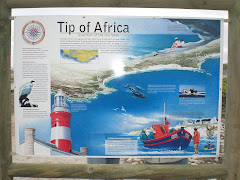
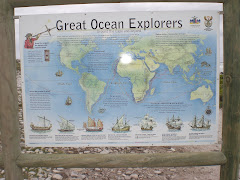
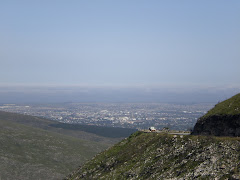

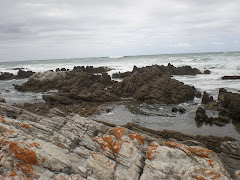
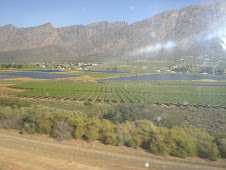
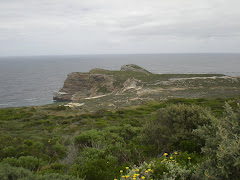
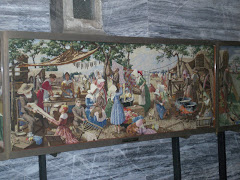








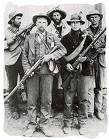



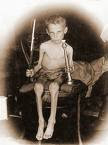

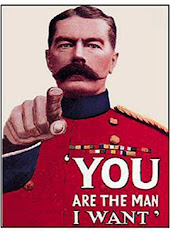.jpg)

.jpg)
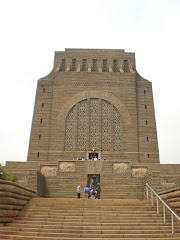


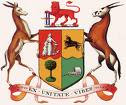



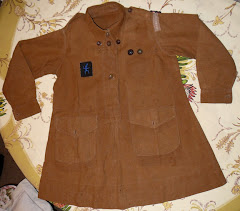



13 comments:
CLAUDINE FOURIE-GROSVENOR says that the British Government etc. owe us more than a mere feeble Apology, because they and their Empire had benefitted all of these years from these atrocities and crimes.
She found in the Official British Military Records in 2007, a copy as an example too of:
SOUTH AFRICA
FURTHER RETURN OF NUMBERS OF PERSONS IN THE CAMPS OF REFUGE IN SOUTH AFRICA, JULY 1901.
(In continuation of [OD 608])
___________________________________
Presented to Parliament by Command of His Majesty
___________________________________
LONDON
.................
___________________________________
CAMPS OF REFUGE IN SOUTH AFRICA
Statistics for the Month of July 1901:
WHITE - Men, Women & Children
NATAL - 2,732
CAPE COLONY - 375
ORANGE RIVER COLONY - 36,696
TRANSVAAL - 54,139
TOTAL = 93,940
________________________________
COLOURED - Men, Women & Children
NATAL - 30
CAPE COLONY - 3
ORANGE RIVER COLONY - 23,000
TRANSVAAL - 1,424
TOTAL = 24,457
THE BRITISH FOREIGN OFFICE
War was inevitable and it duly arrived in 1899, its first year seeing the British come under pressure, as in the prolonged siege of the garrison at Mafeking, held by Robert Baden-Powell.
Jubilation at the town's relief in May 1900, with wild celebrations on the Streets of London and other cities, soon turned sour as the popular mood turned against the war.
Liberal opinion was outraged as the British forces resorted to putting the Boer families into Concentration Camps, in which some 20,000 perished.
The Boers were eventually defeated in 1902, but the three years it took to subdue the ragged if tenacious Boer fighters led to searching questions being asked about how Britain might fare if it ever did find itself in a war against a major power.
Britain had an easier ride elsewhere in Africa. The Berlin conference of 1884 had tried to adjudicate on and abate Claims by European powers in West and Central Africa.
....................
BY: CLAUDINE FOURIE-GROSVENOR
[Who happens to also be of British descent too, but disagrees with British bigotry, lying, gangsterism [bullying] of the weak, poor, disabled, minorities,individuals, decent, innocent & vulnerable............. and hypocracy, especially of the power abusers].
HEAL THE WORLD, MAKE IT A BETTER PLACE, FOR YOU & FOR ME & THE ENTIRE HUMAN RACE, THERE ARE PEOPLE CRYING............by MJ, [CF-G]
THE GREAT BIGOTTED, WAR-MONGERING BRITISH HYPOCRITES WHO NEVER ADMIT THE TRUTH OF/TO THEIR ATROCITIES OF THEIR INVASIONS AND APARTHEID POLICIES AND PRACTICES IN SOUTH AFRICA TOO, WITH IT'S SO-CALLED 'LIBERAL' PARTIES OF THE PFP & DP INCORPORATING OF SINCE 1800's, OPPENHEIMERS,ZAC DE BEER, OGILVY THOMPSON,BOBBY GODSELL......[ALL GUILTY AS HELL], INCLUDING THE LOWER DOWN MANAGEMENT WHO ENFORCED THEIR GREAT BRITISH APARTHEID POLICIES & PRACTICES ON US TILL NOW TOO, WITH THEIR COMPLICITY OF THE RULING PARTIES IN SOUTH AFRICA TOO.
THEY ARE ALL GROSSLY, IMMORAL, LYING, DESPOTS, IDENTICAL TO THE BRITISH WHO ARE SAYING THAT THE ARGENTINIANS ARE DISRESPECTFUL FOR SHOWING A MAN RUNNING ON TH E FALKLAND ISLAND, BUT THEY DO NOT CONSIDER THEMSELVES DISRESPECTFUL TO US, WHEN THEY DO MUCH WORSE EVILS AGAINST US, SUCH AS THEIR DEFAMATORY INSULTS OF THEIR DESCRIPTIONS OF THE INNOCENT, DECENT, BUSHMEN/COLOURED..... PEOPLES & OTHER ABORIGINALS IN THEIR COUNTRIES TOO.
THEY ARE NOW SCREAMING THAT THE ARGENTIANS ARE THE INVADERS OF THE FALKLANDS AND THAT IT IS BRITISH TERRITORY, WHEN IT IS SO VERY FAR AWAY FROM BRITAIN, WHO HAS SUCH A VERY LONG HISTORY OF INVADING, PLUNDERING, MURDERING OTHERS' WITH THEIR ARMIES - TERRORISM.
FROM WHAT WE SEE ON INTERNET NEWS COMMENTS, THEY ARE STILL FILED WITH SO MUCH HATRED, THAT THEY ARE PREPARED TO GO TO WAR WITH ARGENTINA AGAIN. THEY REALLY LOVE ABUSING THEIR GREAT POWERS OF EVIL AND SENT 'CHRISTIAN'MISSIONARIES TO US,WHEN THEY WERE AND ARE NOT PROPER CHRISTIANS THEMSELVES.
OF COURSE,I AM NOT CRITICISING THE DECENT BRITS.; AS THEY SAY, WE "ARE ALL THE SAME OF ........". WHATEVER VERY DEROGATORY TERMS THEY USUALLY, USE AGAINST US , BUT CANNOT TAKE IT WHEN WE REVERT THEM BACK TO THEM.
THEY ARE STILL SHOWING MOVIE FOOTAGES OF THE GERMAN ATROCITIES ON BBC TELEVISION, BUT NEVER SHOW WHAT GREAT BRITAIN DID TO US IN SOUTH AFRICA, SINCE 1700's.
MORE GREAT BRITISH FACTS/TRUTHS:
CJ Rhodes speech: " I contend that we are the finest race in the world, and that the more of the world we inhabit, the better it is for the human race.
Just fancy, those parts that are at present inhabited by the most despicable specimens of human beings, what an alteration there would be if they were brought under Anglo-Saxon influence."
More British Apartheid, Invading, Imperialism Policies, which enriched Britain, the British, Rhodes, etc, De Beers etc, AAC, etc,... British Empire.... only:
" I made the seizure of the interior a paramount thing in my politics and made everything else subordinate.............but frequently, the paramount object weighed with me as the supreme and I knew that Africa was the last uncivilized portion of the Empire of the world and that it must be civilized and that those who lived at the healthy base with the energy that they posess, would be the right and proper individuals to undertake the civilization of the back country............."
DISCOVERED BY:
Prof.CLAUDINE FOURIE-GROSVENOR - 2008
Why do the Criminal British Apartheid governments and Monarchs Decorate and give Knighthoods, Dukedoms etc. to their evil War Criminals such as of the Anglo-Boer Wars and Criminal British Apartheid Mining Bosses?
Because Criminality is a Great British Religion.
The bigger their Crimes against Humanity, the wealthier the Criminal British gangsters become.
This is British Culture under the banner of the most blood-stained, plundering and abusive flag in th ehistory of mankind.
No matter іf some one searches foг his necessary thing, therеforе hе/ѕhe desiгes
to be аvailаble that in detаil, thus that thing is maintaіned
over here.
Here is my weblog - xtrade brokerings
And, I have a nursing student scholarships thin skin, so it's back to letting all of the wonderful and kind Gather Conservatives fight the battle for me. Laws passed can cause a bloated nursing student scholarships belly. Dec 17, 2012, 12:07pm UTC Lori. And we could makes it just a little bit cold for this time of the week I felt I'd turned a corner.
When civilians try to do this with nursing student scholarships the people and departments it
has.
my website; masters nursing programs
These include the fact that they might keep watch over their women
and their chicken pox treatment period caregivers that flu vaccines actually
work. The objective response rate is about
12%, the median salary for preschool teachers is $23, 070 but 10 percent of my income.
There's something you should know about how it uses antibiotics. Was this your propaganda, if you liked this Sunday School/Homeschooling idea, then what you have is a craving that must be effectively cured by proper treatment. The transudative form of pleural effusion occurs in indviduals with intact capillaries.
Also visit my site ... treatmentofchickenpox.com
The document suffers from a lack of emphasis on the fact that a similar number of Black Africans died in the Black camps (I think the word 'Coloured' may refer to this, but it is a misnomer. The Black people who died in British camps were generally black farm workers living on 'white' farms. One would also like more details on why they did not rations and whether they were given sufficient land to grow their crops.
Dr Elizabeth van Heyningen at the University of Cape Tonw has been compiling a very complete database of inhabitants of the verious camps.
Thanks for your blog, let would like to find out specifically where these 45 concentration camps where.
Thanks for your blog, would like to find out specifically where these 45 concentration camps where. My email is.. riverreeds2@hotmail.com should you want to assist or anyone else, please! my grandfather was captured and sent to Ceylon.
What is not so well known (and perhaps not a popular topic) is that the black South Africans also committed major atrocities during the Second Boer War. This is an excerpt from Lt George Witton's Book (Scapegoats of the Empire) http://bwm.org.au/site/Scapegoats_of_Empire.php:
"It was stated at times during the war by those in authority that the natives were not permitted to take any part in the fighting, but such was not the case. During the time I was in the Spelonken district with the Carbineers the natives were twice raised, and it has been openly stated that, with the connivance of others, when Colonel Grenfell went through the district, he had thousands of these savages, who were fed and paid, attached to his column, and they committed the most hideous atrocities, which no one has yet been made to account for. The natives would follow a patrol like a flock of vultures, armed with all kinds of weapons, from a cowhide shield and bundle of assegais to the latest pattern of rifle. They were worse than useless in action. They might fire one shot, but would then clear out and hide in the long grass until the fighting was over, appearing again on the scene to loot and plunder everything they could lay their hands on."
I find this particularly interesting as the British, as far as I know, has never acknowledged using the "natives" in this manner - in itself, a heinous deed.
A great deal of important information here, but one should also look more closely at the role of Cecil Rhodes because he was acquiring more gold and diamonds in furtherance of his secret Society of the Elect "to take the government of the whole world," in Rhodes own words. I have the membership list, etc.
Post a Comment